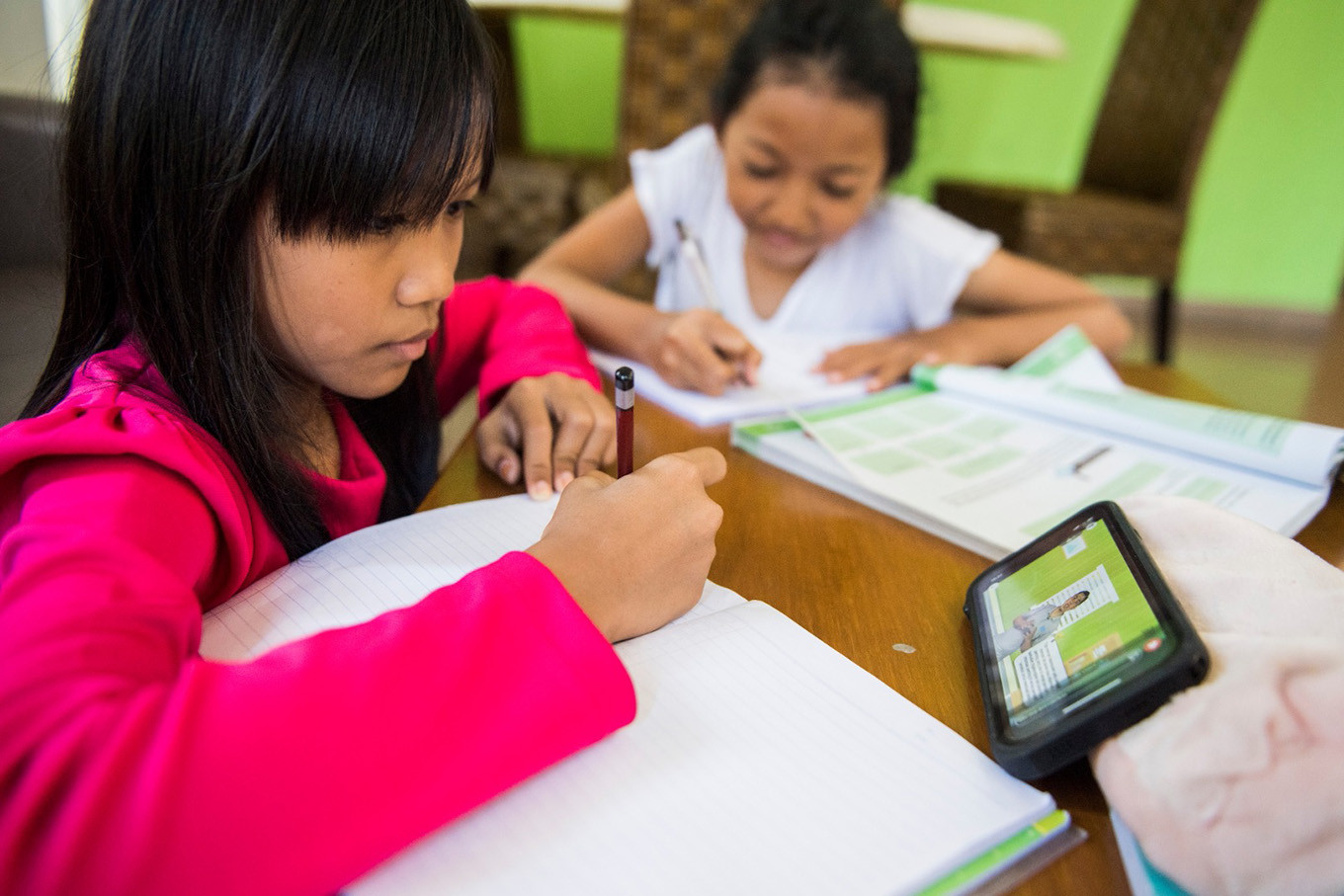Popular Reads
Top Results
Can't find what you're looking for?
View all search resultsPopular Reads
Top Results
Can't find what you're looking for?
View all search resultsRemote learning hampered by lack of student-teacher interaction, KPAI survey finds
About 80 percent of students reported little to no interaction with their teachers in virtual classrooms, saying their instructors used digital communication platforms only to assign homework.
Change text size
Gift Premium Articles
to Anyone
S
tudents throughout the country have complained about a lack of engagement from their teachers after classes were forced migrate online as a result of the COVID-19 pandemic, a recent survey by the Indonesian Child Protection Commission (KPAI) has found.
According to the survey – conducted between April 13 and 21 and involving 1,700 students and 602 teachers in 54 cities and regencies – 79 percent of student respondents reported little to no interaction with their teachers in virtual classrooms, saying their instructors used digital communication platforms only to assign homework.
About 77 percent of the students polled said their teachers had assigned them more homework than usual with unreasonably tight deadlines, resulting in learning fatigue.
About 76 percent of the student respondents said they were not enthusiastic about online learning.
“In remote learning, teachers have only focused on providing cognitive education and have overlooked affective aspects related to character-building,” KPAI commissioner Retno Listyarti said in a statement on Saturday.
She said that many teachers failed to accommodate students who were unable to afford the electronics or reliable internet connections that were essential for remote learning.
“About 42 percent of students said they [could not afford] internet packages, making it difficult for them to make video calls,” Retno said, adding that the current learning methods effectively discriminated against students from low-income households.
The KPAI called on the Education Ministry and the Religious Affairs Ministry to formulate an “emergency curriculum” in an effort to improve education during the ongoing public health crisis.
The organization said that the emergency curriculum should consist only of core lessons and should do away with complex subjects that required direct assistance from teachers.
“An emergency curriculum is needed […] so that students won’t fall victim to ambitious education policies that neglect their rights,” Retno said.










